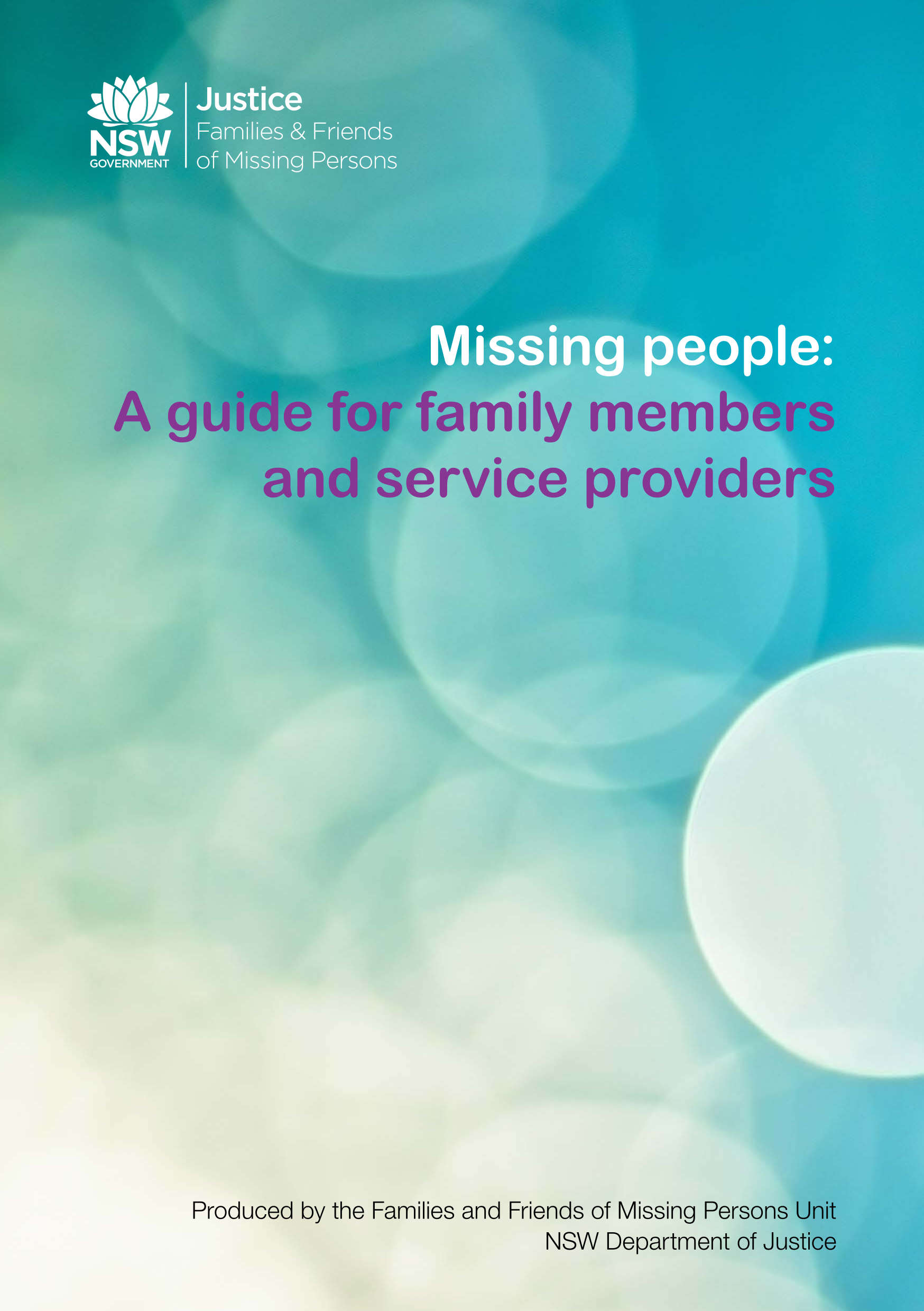Family and friends of the missing can expect to experience a whole range of different emotions. Some of the emotions can include frustration, guilt, anger, helplessness, despair and hope.
Hope is an emotion that can be difficult to deal with while a loved one remains missing.
We often think having hope means believing that the missing loved one will return home safely. For some, this is exactly what it means. For others, hope may mean different things:
- Often elderly family members worry that they will die without knowing what happened to their missing loved one. As a result, elderly relatives may focus their hope on finding answers before they themselves pass away.
- Some may hope that the missing person is happy and safe wherever they are.
- Others may hope that the missing person’s body will be found so that they can have a proper burial.
Changes in hope
Individual family members and friends each experience the unexplained disappearance in their own way. Emotions or beliefs about what to do may be different for each family member or friend. The same is true for hope. While some may hold the same hopes, it is not unusual for each person who is affected to hope for different things.
In fact, what one hopes for will likely change over time. Hope is fluid and can be influenced by the length of time since the person went missing, the information available, your own personal beliefs, your resilience at the time, your physical health and your support system. Hope can also be shaped by what you know about your missing loved one and believe about their fate.
What you can do
If you are supporting someone with a missing loved one, it is helpful to remember that hope is personal. For this reason, a person’s hopes should be accepted rather than judged.
This does not mean that those providing support should be afraid to have discussions about what the family member hopes for and what has shaped these hopes.
Talking about a family member’s hopes may reveal how the individual is coping. Creating an environment that is safe and non-judgmental may help a family member to feel comfortable enough to talk about what their thinking and feelings are. The conversation should not be forced. Allow the family member to set the pace of the conversation.
As the amount of time since the disappearance grows, it may become necessary for family members to let go of the hope that the missing person will return home. This can cause feelings of guilt because it may feel as though they are ‘giving up’. If this happens, reassure the family member that this is a common coping mechanism. It does not mean that the family member has stopped loving, or wanting to be reunited with the missing person.
This document has been developed by the CCIMA for general information purposes (12/2012).


